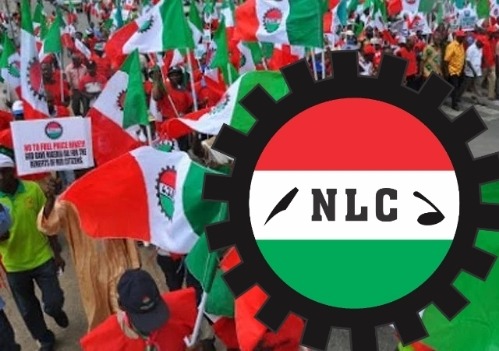Nationwide Strike Grounds Nigerian Economy: Airports, Electricity, and Government Offices Shut Down
This post has already been read 23290 times!
As a nationwide strike initiated by labor unions, including the Nigeria Labour Congress (NLC) and the Trade Union Congress (TUC) began in Nigeria on Monday, June 3, 2024, there has been significant repercussions across various sectors of the country’s already suffocating economy.
This is coming as workers enforced the directive their respective unions to embark on strike action over the deadlocked minimum wage negotiations and the recent hike in electricity tariff.
One of the key areas affected on the first day of the indefinite industrial action by multiple unions affiliated to the two main labour unions is the power supply disruption across the country as the labour unions shut down the national power grid, leading to widespread electricity outages.
From Lagos to Kano, citizens have faced disruptions in their daily lives due to power shortages.
Also affected is air travel, which suffered disruptions as airlines across Nigeria have been severely impacted by the strike by workers, leading to flights cancelations or delays due to airport closures and disruptions caused by striking workers.
Healthcare services have also been paralyzed as hospitals and healthcare facilities have been affected, with medical staff participating in the strike.
Patients seeking medical attention face challenges as essential services are disrupted across the country.
Government educational institutions have been closed, with schools and universities suspending classes in compliance with the directives of the workers’ unions, leading to students’ education being put on hold as teachers and administrative staff joined the industrial action.
Also shut down by the striking workers are government offices at various levels —federal, state, and local — thereby affecting public services such as passport issuance, tax collection, and administrative functions, which have all come to a standstill since early morning when the strike commenced.
For instance, labour unions in Katsina State on Monday shut down commercial banks while civil servants shunned their offices as monitoring and compliance teams of the NLC and TUC converged on the NLC Secretariat on Monday morning from where they visited the Katsina State Secretariat, the NYSC orientation camp and the Turai Yar’Adua General Hospital.
Speaking in an interview, the NLC Chairman, Comrade Hussaini Hamisu Yanduna, said the strike would go on until the Federal Government meets their demands.
He said, “You know as it is being widely informed that there is a nationwide strike which commenced 12 midnight of yesterday, all workers in Nigeria are now on strike and the purpose of this strike is to inform the Nigerians and government that workers are not happy with the way the Tripartite Committee is handling the negotiation which was supposed to be implemented since last month.
“We have commenced and we have as instructed, a monitoring team to ensure total compliance on the strike.
“So far, there is total compliance. The purpose of the strike was one, on the minimum wage implementation and two, on the hike in electricity tariff.
“There have not been any obstructions because workers are aware and have experienced and once a strike is being called, they comply and I am happy, all places visited by our monitoring team, there is total compliance.
“In every strike, the first day there is one complaint or the other because some sectors will say they are yet to receive instructions but during the week after work on Friday, we received the notice and we had a meeting on Saturday and Sunday that is why even banks have complied.”
The economic impact of the strike cannot be over emphasised as the strike has significantly disrupted economic activities across Nigeria. Businesses are struggling to operate, and citizens are facing hardships due to reduced access to essential services. The fragile Nigerian economy is further strained by the ongoing industrial action.
ABUJA BUSINESS REPORTS NEWSPAPER & MAGAZINE reports that as negotiations between labour unions and the government continue, it remains crucial for both parties to find common ground.
According to stakeholders, while workers demand better wages and improved conditions, dialogue must prevail to prevent further harm to the nation’s economy.
Meanwhile, the Federal Government has called for fresh emergency talks with the trade unions as the strike action bites harder nationwide.







